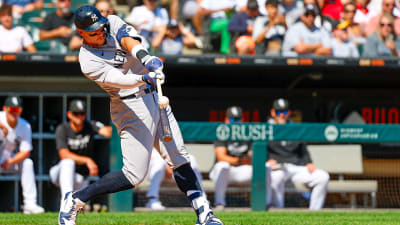Elon Musk has publicly declared that Deus Ex is “one of the best games ever. Although his statement isn’t particularly controversial in gaming circles, it does reveal a fascinating paradox. Specifically, his personal admiration for the title showcases an impressive and almost profound lack of self-awareness. That said, how can a figure so deeply embedded within the global power structure see himself as an outsider?
A Masterclass in Missing the Satire
Musk frequently positions himself as a heroic, anti-establishment figure battling against the status quo. In reality, however, the billionaire is the world’s wealthiest individual, the owner of a major social media platform, and a political influencer. Furthermore, his rhetorical attacks on ‘the establishment’ consistently align with moments when his vast fortune, his ability to promote hate speech, or his favored conspiracy theories appear threatened.
During the COVID-19 lockdowns, this pattern became starkly evident when he drew parallels between essential public health measures and the narrative of Deus Ex in a series of tweets. In the game, a shadowy cabal of the ultra-wealthy weaponized a man-made pandemic to seize total control. Ultimately, Musk pointed to this plot point to question the motives of real-world institutions. Unsurprisingly, Austin Grossman, a lead writer on the original Deus Ex, finds Musk’s interpretation of the classic cyberpunk immersive sim to be deeply flawed.
A Glitch in the Elon Musk Matrix
The game’s particular story intensely focused on the mechanisms of power and the tools—both technological and mystical—that elites use to manipulate and control populations. Moreover, the worlds of Deus Ex and Dishonored, another title Grossman contributed to, share similar plot elements. Beyond storylines, these games serve as critical explorations of transhumanism and the ethical decay that accompanies absolute power.
Additionally, industries and ventures Musk himself is heavily invested in find these themes directly relevant. Notably, Grossman observes that these works have a common thread centered around political influences and sharp social satire. He also finds Musk’s attraction to these elements creepy because he believes they fit within his own worldview. So, does the billionaire not comprehend the inherent critique within these stories? According to the writer, this ironic appreciation may be the game’s longest and worst legacy.
Writer Confirms Musk is Not JC Denton
Musk easily identifying the clear villains within Deus Ex isn’t a big issue, as many players have these ideals as well. The central problem, however, is that he genuinely seems to believe he is opposed to them. In real life, his public persona and actions suggest otherwise, as he’s seen as a less competent, more publicly erratic, real-world counterpart to the game’s AI-obsessed billionaire antagonist, Bob Page. Glossman also noted that it’s obvious Musk doesn’t occupy the role of the protagonist, JC Denton, within the game’s allegorical framework to highlight the bizarre nature of Musk’s disconnect.
Given Musk’s command of a bafflingly devoted online following, public criticism of Musk carries its own unique set of risks. Not only that, but his own personal propensity for targeting detractors with a level of gleeful pettiness is also a problem. For a man in his 50s overseeing multiple corporations, this behavior can lead to even bigger issues, especially if he’s challenged.
The Real Deus Ex Villain Has Logged On
Additionally, Grossman acknowledges this potential for backlash, joking about the consequences of his candid remarks. He also stated that he doesn’t want Musk to Google him, as his fans would probably murder him, in a darkly humorous nod to the intensity of the online harassment that can originate from his supporters. Grossman elaborated on this mismatch between Musk’s self-perception and his actual position of immense influence in a previous interview.
He argued that Musk pathologically imagines himself as a plainspoken everyman standing up to the elite instead of recognizing that he is the elite. The writer also delivered an even more scathing assessment by stating that Musk could resemble a Deus Ex villain. However, Grossman clarified that the franchise never actually created an antagonist quite as whiny, self-serving, and delusional as Musk has proven himself to be. With this final point, Grossman reveals the core irony that the real world has produced a figure who surpasses the fictional dystopia’s own imagination for unself-aware tyranny.
More must-reads:
- Yankees SS Anthony Volpe's problem isn't production, it's perception
- Keegan Bradley sparks Ryder Cup strategy overhaul after Team USA’s 2023 failure
- The 'Multiple TD passes in an NFL debut' quiz
Breaking News
Trending News
Customize Your Newsletter
 +
+
Get the latest news and rumors, customized to your favorite sports and teams. Emailed daily. Always free!








